'Carry the bag' - An interview with legendary photographer, Chi Modu
)
In the early 90s, rap music was more of a fad than an established and respectable genre of music.
Hip-Hop was deemed loud and obnoxious by culture critics. Little did they know that the counter-cultural lifestyle that emanated from the Bronx in the 70s was about to enter a period of unparalleled dominance.
Not only would rap music find a home on top of Billboard charts, but Hip-Hop also became the defacto culture to represent the angst of a generation.
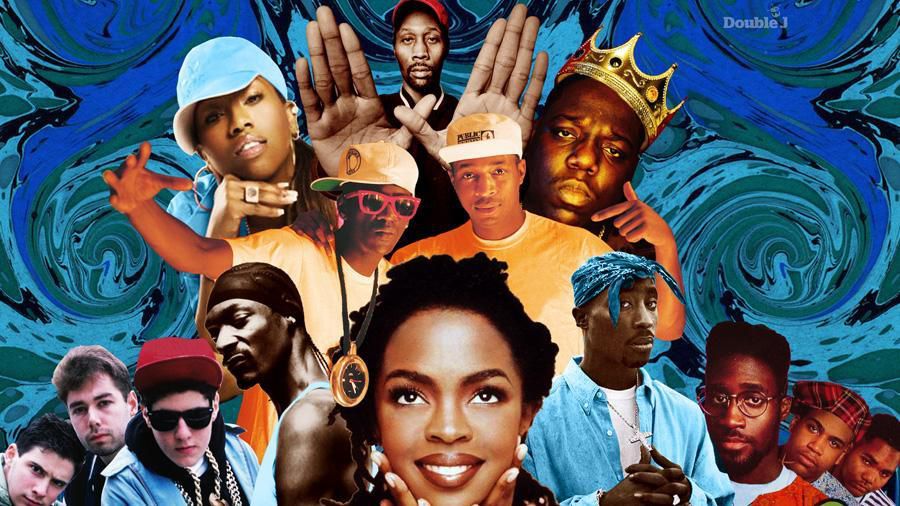
In the thick of things during this period was Chi Modu documenting the innocent beauty of rap music. You might have never heard of him, but it is more than likely you have seen his pictures.
For instance, he is responsible for arguably the most endearing picture of the enigmatic Tupac Amaru Shakur. You have seen it, Tupac is shirtless with his eyes closed, a white bandana on his head, his arms raised, a stick of cigarette in between his fingers, and a slithering trail of white smoke coming out of his partially opened lips. Yeah Chi Modu, shot that!
Apart from taking classic pictures of rap's most famous outlaw, Chi Modu has snapped the Notorious B.I.G with the World Trade Center as a backdrop ("Time to get paid, blow up like the World Trade"), Snoop Dogg, Ice Cube, Mobb Deep, Eazy-E, Dr Dre, A Tribe Called Quest, Nas, Common and many other rap luminaries.
Chi Modu is a Nigerian. His family moved to America in the 60s, and that is where he grew up and later started a legendary career in photography. With over two decades in the business, he is a bonafide legend and one of the most impactful photographers in Hip-Hop.
In November 2018, I had the honour of sitting down with the man whose photo shoot was where Notorious B.I.G would meet a certain lady named Faith Evans for the first time. He was in town for the BudX event, and I had a few minutes to kick it with and ask him a few questions.
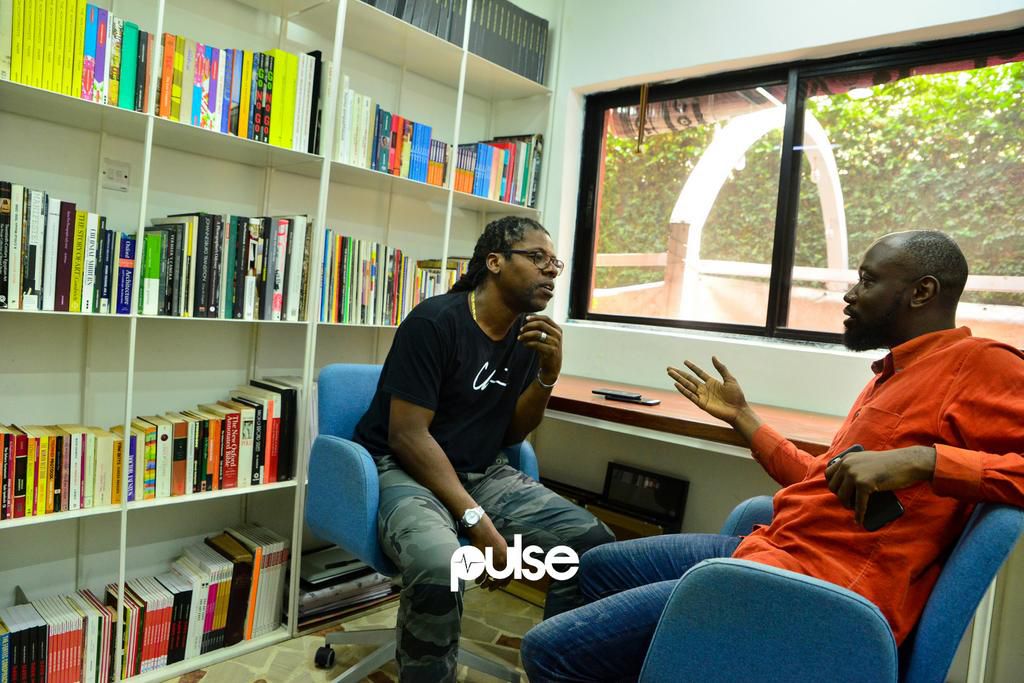
In this Q&A session, Chi Modu speaks on what it was like growing up as a Nigerian in America during that period, his entry into THE SOURCE, his relationship with 2Pac and Biggie (who he still refers to in the present tense), the art of true photography and the global entrance of Nigerian pop music.
Most importantly, he breaks down the importance of why young creatives need to play the long game ("carry the bag" as he calls it) and be patient in developing their craft.
You can read the excerpts below;
Pulse: How has it been like Lagos? How would you describe the vibe of Lagos now?
Chi Modu: Lagos is a crazy city. I have been to a lot of cities. I was even telling my mum 'I have been to Bangladesh, I have been to some crazy cities, this is probably the craziest I have seen.'
Pulse - Why?
Chi Modu: It is intense but I like that. I like the energy of a place and I think there is only opportunity in places that are a little bit crazy. When I look at Lagos, I see opportunity. I think everything is needed, so if you can win here you will be just fine.
A lot of people say that they are global. I don't count two continents as global, to me it's five and up. Until you touch five and up you are not global. Going to Asia and Europe does not make you global, you must touch South America, you must touch Africa. Once you do that, you can start to say you are global. Coming here for me is very important for me to claim global. I need to be on this continent and that is why I want to start at home first.
Pulse: How was it like growing up in the 'States as a Nigerian in the 70s?
Chi Modu: My family is the first round of immigrants so we came during the Biafran war. I moved to the 'States in 1969. I was two and a half years old. What's funny for me is watching all these years as it has become more normal because we were the first round.
Now, there are people, even Amari's* generation, we've been here now, we have positions but I was more in the trailblazer crowd. At that time they weren't really familiar with Africans only in the movies and it wasn't really always positive our image.
So, you understand why they didn't understand you. Right around High School, right around De La Soul, things started to change, like folks in America wanted to find out who they were. It was almost overnight when we became cool and I didn't hold anything against anybody for it. They were socialized that way, it wasn't their fault. Now that it has changed, it is definitely much better. We are not just people who live in the woods, jungles and stuff like that. So that part is kind of nice. I have seen that whole process happen.
Pulse: As a trailblazer, how was it like navigating that entertainment space as a Nigerian early on?
Chi Modu: In fact being Nigerian really didn't matter because no one really knows that until you tell them especially if you have the accent that I have and my accent is from New Jersey. People saw my name at times and thought I was Asian because they never knew what I looked like. They would see Chi and think that I was Asian but no that's one of the most common Nigerian names you can find.
A lot of the process has been kind of teaching people from observation like they are learning. It was really more, not as much trying to navigate as a Nigerian but kind of trying to navigate it as a young black man was a challenge.
The good thing at that time was that the subject matter looked like me so automatically I had an in, based on that, and I could relate to them and I could understand them. If you kind of go back to the history of it, I was really the only one doing it at this level.
There were other black photographers but none of them at the top level so outside of me, everyone else is non-black. That's just the reality of it so I knew that when I did it. I knew that it was very important for someone that looked like me to control this body of work because I felt it would stay in my community because every step I take is always about my community first, because of my community is why I am large. I never go too far away from my community.
If you notice in my pictures, I only photograph my community. I know other people, I do other things but I am very focused on my community because once they have you, they never let you down. The support I get from my people once they actually understood my mission is off the charts.
And now is the time to have a Nigerian one because people are realizing what my mission was to sort of like...I was thinking about you even though you didn't know me. I was thinking about your history. I was thinking about your legacy and coming here I am very happy for Nigerians to actually stake a claim in Hip-Hop that they have always had because of me. They just didn't know it but they were in the centre of it from the beginning and that's a nice thing.
Pulse: How did you get your position as Director of Photography at THE SOURCE Magazine?
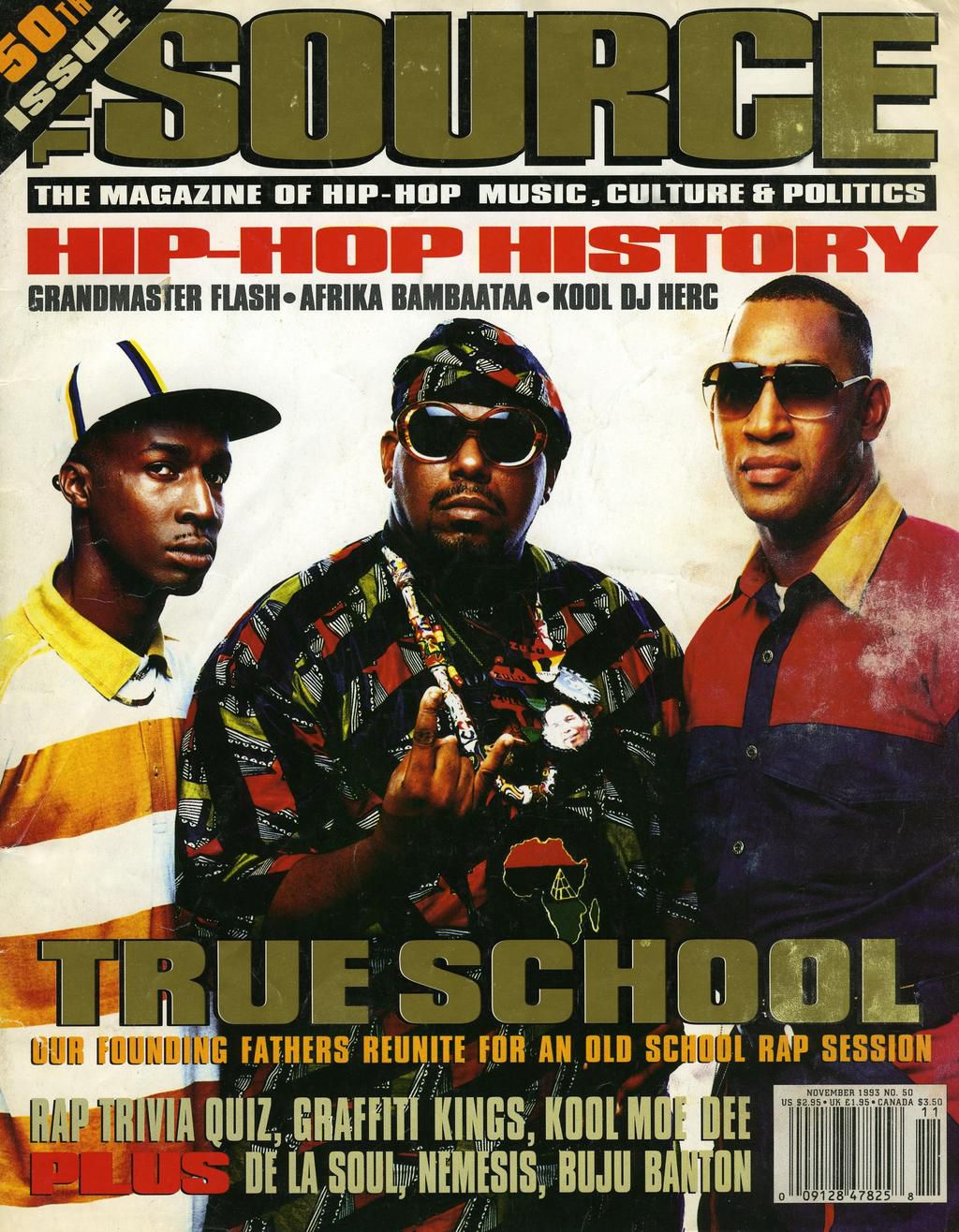
Chi Modu: THE SOURCE was just coming up in 1990, 1991. They had just moved down from New York to Boston so they didn't really have a photo department. As a matter of fact, they had an NYU film student that was running the photo department. Once I showed up, I was like 'alright, I know how to do this' because I was a trained photographer in 1990. I have always taken photography very seriously. When you bring that high level of skill to an arena that didn't have a high level of skill, you can actually create really important work.
When I see everyone shooting with digital cameras I'm like there weren't digital cameras back then. Digital cameras appeared in 1999. All my work was on film and not just film (but) slide film so it was very technical photography. There was no room for error in slide film.
Once the digital camera popped on the scene it was easy for me. They are easy technically. Photography is still what it has always been. The technical part of photography, get it out of the way because it is still what is in the frame. That is really what we do.
Unless your photograph moves me, you are not a photographer. I have a very clear judgement of who a photographer is to me. It's not you saying that you are a photographer, it's is there a photograph that you took that I remember or that is memorable? That's how you are defined. You are defined by your work and not the label.
If you tell me you are a photographer and none of your photographs come to mind, no, you want to be a photographer. And it's a big difference. What I'm saying in that is that it takes time, focus, to produce work that people know. That's our goal as photographers. You are trying to produce things that people will remember. That's your mission, that's your focus to create something that people will remember.
Pulse: Hip-Hop magazines are no longer popping. Has this affected Hip-Hop photography?
Chi Modu: There is no such thing that is Hip-Hop photography, there is photography and your subject happens to be Hip-Hop.
What has affected photography is the presence of the camera phone and the digital camera. And Snapchat...and all those quick things, it has made people think quick and photography is slower.
I think it has given people impatience which has hurt them a bit. If they have not featured in Highsnobsiety yet, they think their career is a failure. I am not getting written about until I am 22 years into my career. So when people try to do the opposite, I'm like no this is where your focus is wrong. It really has to be what you are producing and from there eventually, they are going to want to write about you. You don't want it unless it is in that order, because it is fake, you cannot maintain it.
You can't have a trajectory that is too steep so you won't slide down. That's kind of how it goes.
Pulse: What was Hip-Hop back like in the early days?
Chi Modu: Hip-Hop started before my time but my era is sort of when it jumped. I call that era the defining year. It really started to become mainstream. I was there during that process. Now when you see Drake and the other guys today, they are a by-product of what we have created. And that is why I can relate to all these guys because I know what they are doing. They are following our road map in a way and it is nice to see where the road map has gone.
I still feel, even with the guys here, I feel a part of what they are doing because I kind of laid this out in a way. In the early stages, it was fun because there was no road map so we were establishing it. The tricky part now is that with an existing road map, it's a lot harder to go outside the box. There was no box, so everything we did, we were charting it. And that's the problem because people feel everyone is doing a trap beat, we need a trap beat.
No one is really going out and establishing that benchmark. Once one person does something everybody keeps on copying. You get it, it's human nature. You see it all the time but that's not really the winning formula. The winning formula is in what you establish, stick to and focus on. And eventually, people will come around to it.
Pulse: You are known for shooting many iconic photos. What is the philosophy of achieving this?
Chi Modu: Probably one of my biggest photo skills is my personality. You watch me when I enter a room, you see how I move around. I take control but it is gentle. When you are dealing with superstars, you have to be able to take control because they only respect people who know how to take control but you have to know how to do it right.
The reason I am able to take control is that I am here trying to help you go where you are trying to go. I'm on your team. I'm the one looking at you. You may think you are cool but I have to see you as cool to press my shutter. You have to trust me to make me look right. As long as you are able to trust me we will be able to do good work.
And how I get you to trust me is you get to see who I am. I come with my arms and eyes open with no judgement but I will take you where you want to go. That's sort of my approach and it works with all of the people that are large because they know the process. Once they see somebody that is large, they get it. They smell it on you so together you go up.
Even Snoop (Dogg) said it recently that he did not know how to be Snoop until I showed him visually. He knew how to rhyme as Snoop but he did not know how to look like Snoop. I helped him become the Snoop that he is today visually.
And that's my job. My job is not the sound, it is the look. I can hear your music, it doesn't really matter if I like it or not, my job is to make you look good and it is a separation of the two skill sets. We come together but we also do two different things.
Pulse: What was Tupac like, describe his essence as a human being?
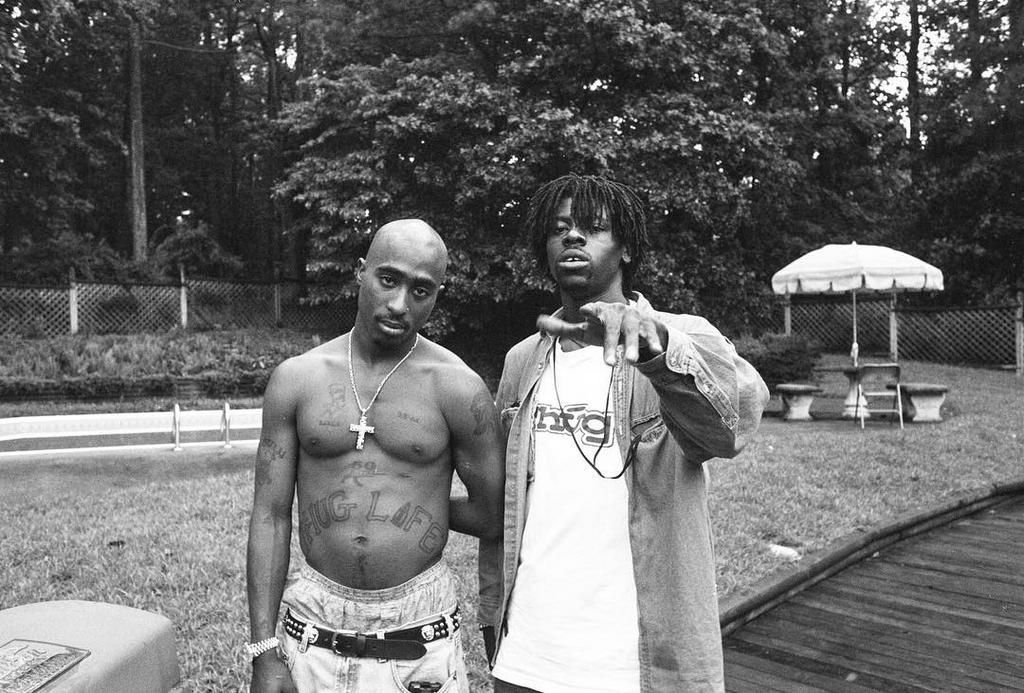
Chi Modu: Tupac is a good dude, that's my homie. He always showed me love and that is why I have such a big body of work of him because we had mutual respect for each other. He saw me as someone who could help him and he took full advantage of it and that is why he lives to this day because by allowing that access in helping me create those images of him, he's been gone 20-something years, but with these pictures, it is like he never left.
I think there is a lesson in that for the younger artists out here because they really have to think about their image and not controlling it too much. What happens is that if you have too much control of your image, you don't have these other soldiers promoting you.
The only people that are promoting you are your inner circle and they may let you down but if you let other talented people have access they too are pushing your brand forward. And this is what the geniuses know. The geniuses know they gotta give access because they have to push themselves out and they can't do it by themselves.
Eminem suffers from it because they didn't have a lot of imagery produced of Eminem because at that point they had a business model where they want to own every photo shoot of him, they own a third of it. The agency owns the third and the photographer owns the third. That's the only way you could get rights to shoot him. The problem with that is that the photographer isn't free to move with that work. So, the work doesn't get to the public.
Ultimately, if your work doesn't get to the public, you start to fade in the public eye. The reason why some people don't fade is that they have images that stay because the images outlive the music. That's how it is, visual arts outlive the performing arts.
Even if you are a performing artist and you are large, your visuals will outlive you. It will outlive the music, so it is very important to have good, strong visuals because you remember visual arts. Songs get dated. Even the lyrics of songs, they go away but not your visuals. Your visuals stay. That's why it's nice if you can do timeless visuals which is always my approach to it, a little less heavily styled, a little less brand focused.
Pulse: You also worked with the Notorious B.I.G. How would you describe him as a person?
Chi Modu: That's my homeboy. Biggie is my homie. I could call BIG on a cellphone and he will come through. I have been to BIG's house. And it's funny that I said both of them are my dudes to people of this generation. They don't really understand it. They understand the myth.
I shot Snoop's first album and I am from New York. That East, West thing is make-believe. It wasn't really real. There were cats that had some issues with each other which would have gotten solved eventually but the public almost gassed it up. It was nonsense. I never thought it was that big of a deal and I knew it would sort itself out but people got killed.
I don't necessarily think their deaths were associated with an East coast, West coast beef. Nah, I never thought that. BIG was my man, I knew BIG before he was signed to Bad Boy. He came through THE SOURCE's Unsigned Hype. We were homies. I bought BIG a drink before he had enough money to buy a drink in the park. It was a community then and once you were in that crowd, then you were good.
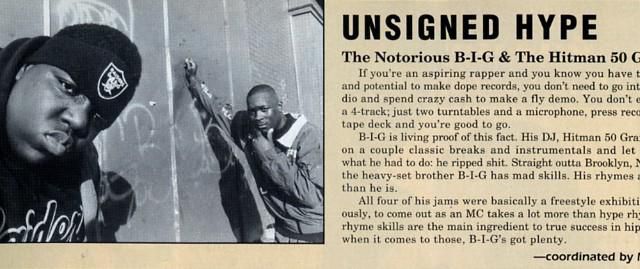
The thing about me was that I have always had this package. I have always talked this way. I have always looked this way. I am not hood but I can go to any hood because I can relate to the hood. I'm African, I get it. I understand economic disparity, I understand all of that. I know I'm here not by choice. I was blessed with the parents that I had. That's why I'm here. I could have been given different parents. I never look at my position as an advantage over anyone. I ask 'how can I use this gift I was given to help you go up?'. The only reason you are given a gift is to do something with it.
I have these skills, I have this self-confidence. I had two parents at home that were loving and good.
Let me help you with this. Let me help you to get to where you are going because you are born to be with this star and I was born to support it.
I didn't come out as Chi, the person you know now until after I achieved that. After I helped everyone become a star, then people wanted to know who is that person who made them a star. Then I'm like 'okay that was me'.
During the process, you couldn't know me because then I would outshine the people. We would start competing with each other and eventually, they don't want you around because you are there to support them period. There are no ifs or two ways about it.
I will carry your bag if I have to because once I carry your bag and you get there people are going to say who got you there. That's what brings us here now. If I can teach anything to the people here it is this. I didn't want you to know me in 1996. I didn't want you to know me in 2006. I wanted you to know my work.
Now that I have this body of work, it is okay for you to know me because there is no competition between me and the artists that I have photographed who are really sacrificing a lot putting their neck out there to be on that stage. I can't slip in and put myself on stage too. It is actually dishonest.
Now I can do it because my body of works puts me on their level even above them but only just now. The whole time I was carrying the bag. I was working, producing, grinding and now it comes out. And I am still fairly young for an artist.
My niece told me 'Uncle Chi, I would never be able to do what you did'. And I am like 'you would be lucky if you could get it done this fast'. She's like 'I can't make it that long' and I'm like 'then you can't do this because I got it done pretty fast'. What kind of schedule are you basing your decisions on? Are you basing it on that G-wagon you saw? Well, that's not this path. This path eventually gets that but not when everyone else is getting it.
I didn't get married at 26. I got married at 40. It is a different path. You have to know what you set out to do, and stay on that course. Eventually, you bounce around the globe. I wasn't always bouncing around the globe. It is just the nature of it but my work and who I am is always in front of the plane, I'm just not always there.
Pulse: The period you were documenting this great era in Hip-Hop had a lot of gun violence. How were you able to function highly within this period?
Chi Modu: It is not that different from here. Real knows real. The streets know you, they smell it on you. People know who is a sucker and who's not. As long as you are clear about who you are, you can go anywhere but you must respect the community. I will never go into somebody's hood and act like I am the boss. As long as you have these rules, other hoods will welcome you. You don't go into somebody's hood trying to pick up all their women. That's trouble. Respect them.
If they invite you, that's ok. That's their hood. It's the same way they are not going to come to your hood, trying to be king. As long as you move with those rules, people, they will welcome you. And these hood rules don't change. I have been to Damascus, Syria, I have been to Yemen, I have been to Bangladesh, I have been to Harlem, I have been to the 5th Ward in Houston, I have been to Liberty City in Florida and I am always unarmed and I always come home safe.
Pulse: How has it been like watching Nigerian pop music penetrate North America?
Chi Modu: It's a little bit wild to be riding in your car at 5 pm drive time in New York City and you hear a Davido song. That was a little wild. When I heard that last week I was like 'ok things have shifted' because that has never happened before. That part is good. The only thing I caution a little bit is that they are mirroring the Western culture a little too much for my taste with materialism and all that. That bothers me because it is not sustainable.
There is something that you have coming from this continent that is very unique. I think eventually as the dust settles that is what is going to rise up and you will see the real sustainable voice.
*Amari is Amarachi Nwosu, is a director, photographer and the founder of Melanin Unscripted. She has written for CNN Africa, VICE, Okay Africa, Highsnobsiety and others. She facilitated the interview between Pulse and Chi Modu.

)
)
![The health benefits of ginger and garlic are unbelievable [Food NDTV]](https://image.api.sportal365.com/process/smp-images-production/pulse.ng/01082024/200694f2-3977-47a4-a142-89c80fe6766e?operations=autocrop(236:157))
)
![10 countries where prostitution is legal. [Source - scoop]](https://image.api.sportal365.com/process/smp-images-production/pulse.ng/31072024/5eda0369-74f6-4a3b-82f7-d7dab249c8ac?operations=autocrop(236:157))
![Tribal marks of Nigerian people and what they mean. [guardian]](https://image.api.sportal365.com/process/smp-images-production/pulse.ng/01082024/45e8c254-ebf2-4262-b639-c83e8b56a32e?operations=autocrop(236:157))
)
)
)
)
)
)
)
)
)